Boys track runs towards a championship
Stillwater has had a dominant track team for decades. Ten state titles and 51 section titles prove they are no ordinary track team. What is the secret? The coach. Head coach Scott Christensen has lead the team to ten state championships in the 34 years that he has been coaching.
“Scott’s combination of speed and endurance makes him an amazing trainer,” senior Jake Kennedy said.
Athletes agree that Christensen enjoys winning and strives towards successful teams like few other coaches.
“Scott has an infectious winning mentality, and it really spreads to the whole team,” senior Beau Haugen said.
Instead of the relaxed environment that some other teams have, Stillwater runners compete in an atmosphere where doing well is not a choice, it is an expectation.
“Stillwater track athletes have the mindset that placing in meets and working hard is an expectation,” senior Braden Cousineau said.
Stillwater track athletes have the mindset that placing in meets and working hard is an expectation.
— Braden Cousineau
“Stillwater has great coaching and teamwork, and has a real team atmosphere that makes it easy to succeed,” sophomore James Frampke said.
Christensen described how winning is rewarding and instead of beating others, winning is a reward for one team’s work.
“I think winning is the result of work and preparation. It is like getting an A on a test. In sports, they keep score and competition is healthy. We just compete for fun,” Christensen said.
Christensen’s worst memory as a coach was his cross country team in 1998, but he learned from the experience of losing big.
“In 1998, the Cross Country team had won three meets in a row, it was rated number one the whole season, and then in the state meet which looked like an easy win, we placed third. You remember your losses as much as you remember your wins,” Christensen said.
Christensen described his most treasured memory of winning, when Stillwater had no track titles and he got the first in state.
“My most memorable win was the first state title, because the school didn’t have any state championships in track or cross country when I got here. Big wins are all important and it would be hard to pick a top ten because each win is special. Winning is winning and we all love to win. I want the spotlight on me and the team when we win. I do have an ego, but just as importantly is that I have humility, and it is evidenced by how coaches react when they see me at meets,” Christensen said.
Scott places an importance on having an ego in doing well, and in the self esteem of the runners on the team.
“I’m not usually humble, and you could see that if you look at statistics. But you can’t judge a team based on statistics because they’re what’s left when the tears have been wiped away and the leaps for joy have dissipated. I was in the right place at the right time so that I could be head coach, and what I’ve built this team into is ever lasting and I’m proud of it,” Christensen said.
Although Christensen is key, he acknowledges the athletes are the ones winning, not him.
“The athletes run the meets, but I’ve sold the program and kids always buy it,” Christensen added.
Christensen stresses to his athletes how important it is to prioritize running, and choose to make running something important to them.
“Stillwater runners have learned to prioritize running. Kids are spread to thin lately, but our runners have clearly chosen to make running a big part of their lives,” Christensen said.
In 1996, 49 percent of students participated in sports. Now it’s just 26 percent. Christensen commented on why students are not competing as much as they used to.
“Fees are a big part of it, sports are more expensive than ever before, also specialization. Kids focus on one sport instead of three. I think teachers should be coaches, and I believe that having a teacher who is also a coach builds the team up and adds to the relationship between athletes and coaches,” Christensen said.
Scott puts effort into building a team, and described the stages of development that a team has to go through to be successful.
“Every team, from the littlest team to the NFL goes through the four stages: forming, storming, norming, and performing. Each should take about equal time and often times, bad teams take too long in one stage. Unorganized coaches spend too long forming, selfish teams spend too much time storming,” Christensen said.
Christensen described how he gets to know athletes to learn their unique qualities, and find out what type of athlete they are.
“Athletes live in a spectrum that ranges from selfless to selfish. It’s my job to find their go button, what makes them motivated,” Christensen said.
A successful team has good training and good relationships between athletes. Scott believes training is a science, so it comes easy to him. Relationships were the challenge for Christensen, but he learned a lot from being a science teacher.
“We’re the only animal that has a need for positive self esteem. I’m there to promote the runners’ self esteems. I want them to feel confident about themselves. It can’t all be positive regard and team relationships though. Training is science. Adding stimulus so that runners get better and faster is science. I have a masters in physiology so it is easy for me to train runners,” Christensen said.
The Stillwater track and field team has been dominant for over three decades, and shows no signs of slowing down.
Craig is a senior at Stillwater High School. He's a very social guy and loves to talk to people. He enjoys all kinds of activities and is active in sports....


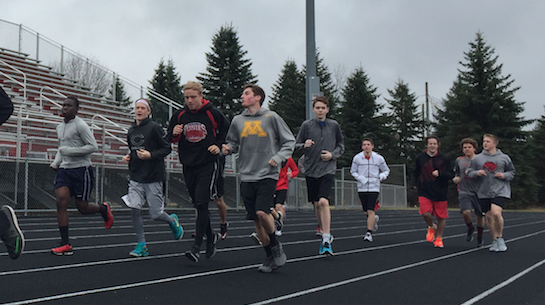

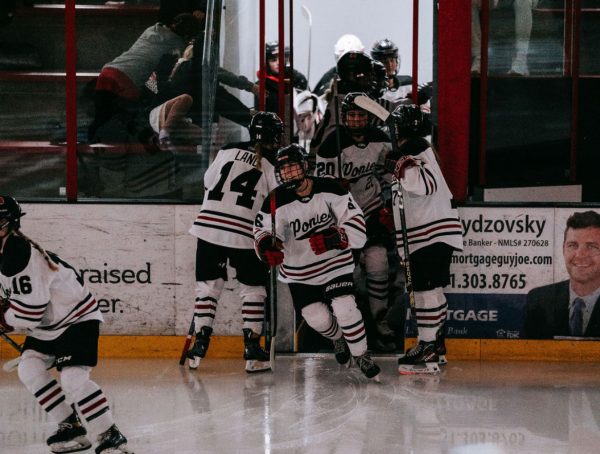
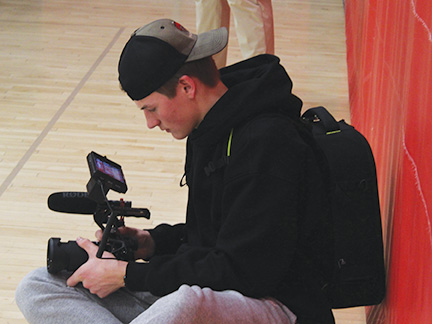
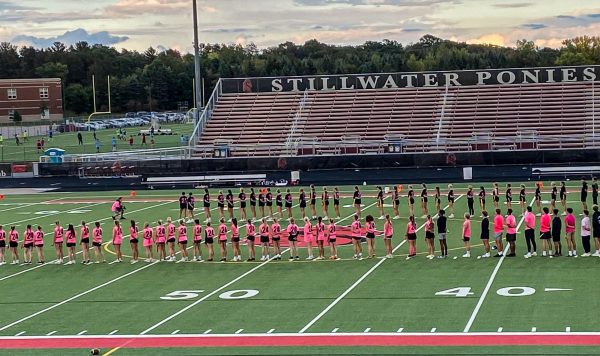
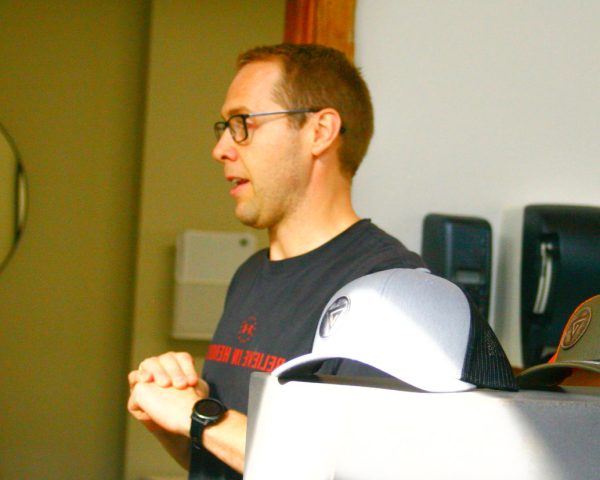


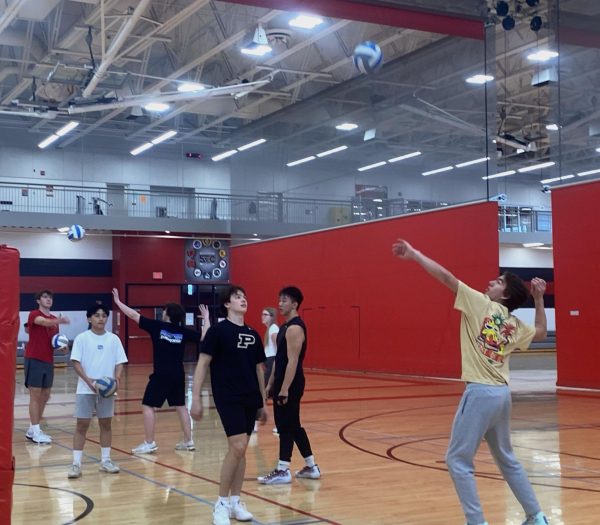
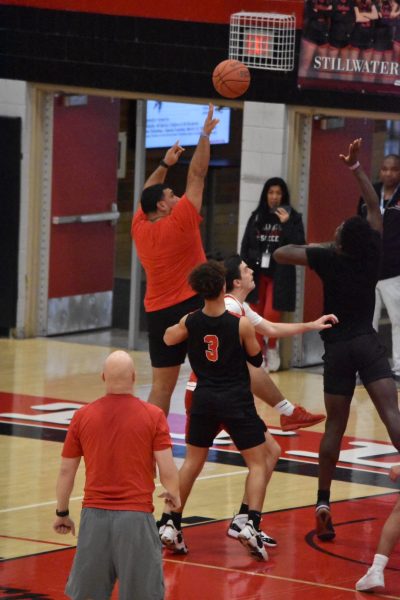
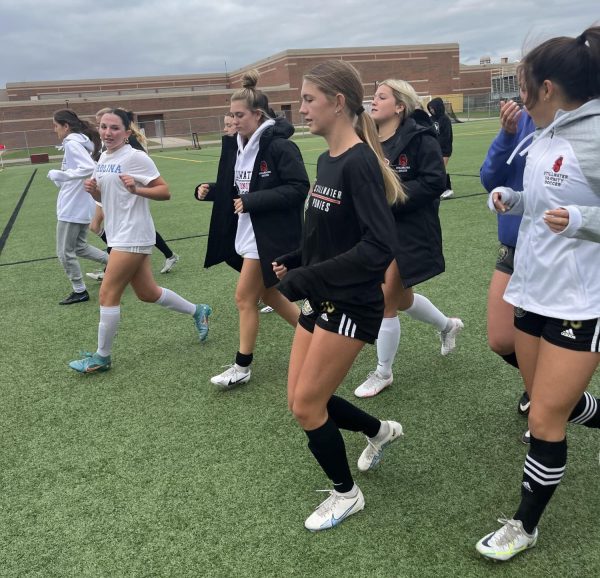
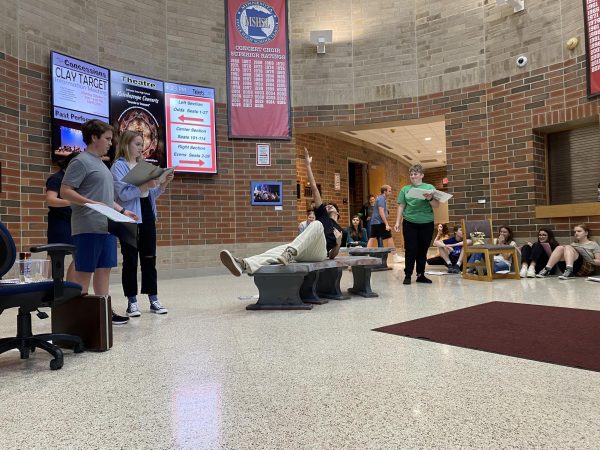

Austin Dowdall • May 3, 2016 at 10:54 pm
This was a very well written article with good quotes from multiple people, it had a really good hook and a good ending this was a good easy read.
Hannah Anderson • May 3, 2016 at 8:13 pm
I really enjoyed reading this article Craig! I thought that the various people you interviewed had great things to say which added to the depth of your article. I also liked how you focused on Coach Christensen’s success as a coach and brought that into what high hopes he has for this season.
Erin Lemanski • May 2, 2016 at 8:23 am
Great article Craig! I found this easy to read and follow along. I like how you interviewed more then just the coach. However, turning the article into an about their success was a nice angle to go about. I could tell that each interview was passionate about their sport. Lastly, I liked how you mentioned his worst year, I feel like it added a more personal feel.